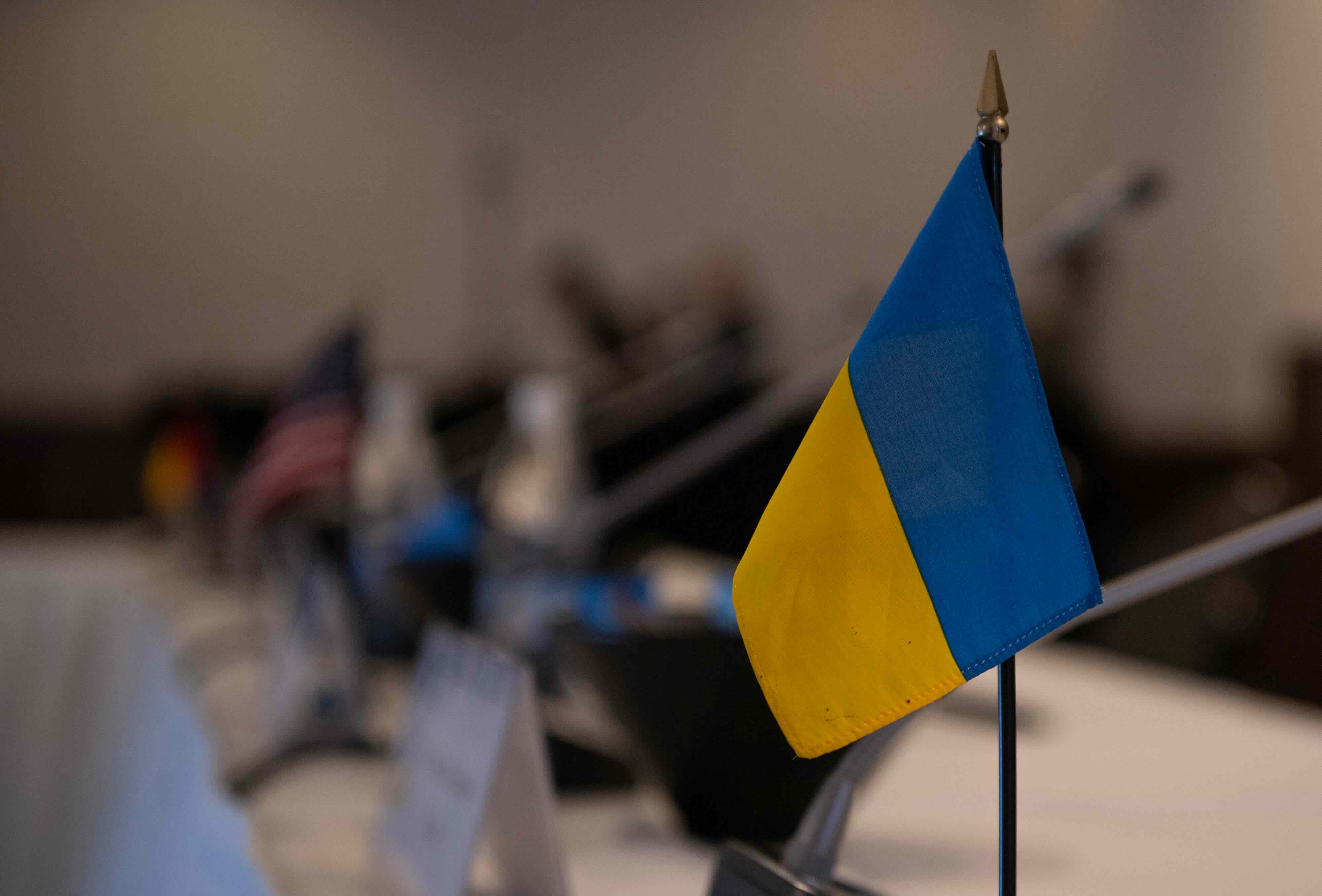
This is the time to press forward with military and humanitarian aid to Kyiv because “Russia has no plan to stop” its aggression at Ukraine’s borders, the foreign ministers of three Baltic nations and the United Kingdom’s ambassador to the United States warned Monday.
President Vladimir Putin’s state-managed reelection for another six-year term paved the way for a huge increase in the Russian army, Lithuania’s Gabrielius Landsbergis said. “We’re talking Stalingrad numbers,” referring to the size of the Red Army in World War II.
Plan B for the Kremlin is to raise the army through a new draft round from 1.2 million to 1.7 million, he said. “Numbers come into play.” He added there are already 500,000 Russian troops in Ukraine. When the war began in February 2022, the invasion force counted 200,000 soldiers, about one-fourth of Moscow’s ground forces.
“Ukraine is fighting for us,” Margus Tsahkna of Estonia said at the Hudson Institute event. “We have to define our goal: Ukraine will win the war.”
Karen Pierce, London’s ambassador to the United States, said, “Putin drove a coach and horses … through those mechanisms set since World War II, particularly since the Berlin Wall came down” to destabilize peace and stability in Europe.
“Russia is fighting a full-out war in Europe,” pouring 40 percent of its gross domestic product to “the military machine, Krisjanis Karins of Latvia said. The diplomats also said Russia is receiving ammunition from North Korea and drones from Iran, and likely technology for its defense industry – but not weapons and ammunition – from China.
He termed the three and Russia “a club of autocrats.”
The foreign ministers, who are in Washington for a round of meetings with Secretary of State Antony Blinken and congressional leaders, and Pierce said often Washington’s leadership was necessary in this crisis.
That leadership included passing more than $60 billion in aid to Kyiv. The aid package to Kyiv, and also assistance for Israel and Taiwan, has been stalled by House Republicans since October. Congress is in recess until mid-April
“American likes winners,” Pierce said. She said she understood the need for transparency in where the money goes once it is sent to Kyiv. “The Ukrainians have pushed the Russians out of the Black Sea, having destroyed 18 percent of that fleet. This naval success has allowed Ukraine to again export grain, easing global shortages that sent food prices skyrocketing.
She added London just approved an additional $3.2 billion to support the Ukrainian fight. London is also training Ukrainian pilots and ground forces. As part of its latest aid package, the U.K. is helping rebuild Ukraine’s defense industrial base.
After pointing out that a large portion of the $60 billion package would be spent with the U.S. defense industrial base, Tsahkna said that amount equals one day of the U.S. GDP. “Europe is doing more” now in terms of military and humanitarian aid than Washington.
He added the EU and Washington are working closely to seize the profits from frozen assets held by the Russian government and oligarchs to be used in military aid as well as future reconstruction in Ukraine.
The profits on assets seized after the 2022 invasion are estimated to be between $4 billion and $6 billion.
“The United States must wake up as well,” said Tsahkna
he three foreign ministers pointed out that in addition to direct support for Ukraine through their treasuries and the European Union, the Baltic states are spending well above the 2 percent threshold NATO expects all its members to put toward their own security.
Tsahkna said, “we still remember when we had no freedom” after the Soviet Union seized the three nations at the outbreak of World War II. NATO, which now includes Finland and Sweden as members, “is the only working security arrangement for our region,”
Containing Russia is “a long-term, 20-year project,” Karins said. The four said Putin has made his territorial ambitions clear, and that Ukraine is not the stopping point in “restoring” a greater Russia. Other neighbors such as Moldova and Georgia are immediately threatened. The Baltics would be next because they are small bordering nations.
“Russia has erased a neutral zone,” causing Stockholm and Helsinki to move to NATO, Karins said.
He added the alliance has to convince Putin and any successor who harbors similar thoughts to, “touch any part of NATO; hell breaks loose.”
“We are not afraid,” Tsahkna said.
“We are ready to shoot.”





